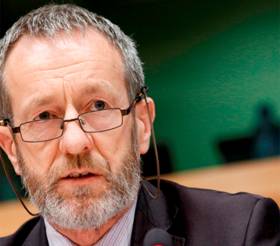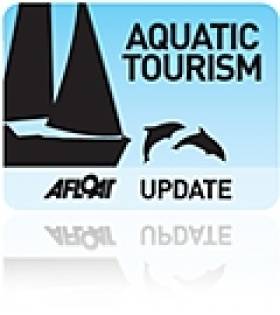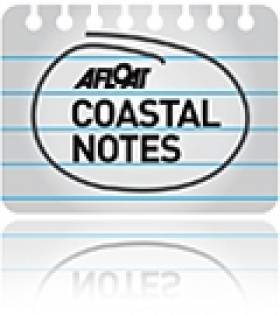Displaying items by tag: Sean Kelly MEP
MEP Kelly Appointed to EU Fisheries Committee
Seán Kelly MEP has this week been appointed to the European Parliament's Committee on Fisheries.
The Ireland South MEP, is Ireland's only Member of the International Trade Committee, which will complement his latest appointment: "Ireland exports seafood to 80 countries worldwide and is renowned for quality produce, particularly in terms of the organic market.
"The EU market itself is very important for Ireland, but what is most promising is the rise in exports to Asia. Irish seafood exports to Asia are now valued at €15 billion and Chinese demand for seafood is on the rise. I see great opportunities for the Irish fishing fleet there. Of course, 2017 begins on a positive note for Ireland which has some 233,500 tonnes of quota this year, valued at €280 million to the industry, representing a 6 percent rise in quota compared to last year, as confirmed just last month.
"As the EU examines future trade policy, it is vital that policymakers are aware of what sectors can benefit from maximising which trade agreements. My membership of both the International Trade and Fisheries Committee of Parliament will ensure Ireland's voice is strong on such issues," Mr Kelly said in Brussels today.
"Ireland also has a solid reptutation for innovation including in the marine sector which I have highlighted on numerous occasions at EU level. Just last year I hosted a delegation of MEPs and policymakers belonging to the Industry, Research and Energy Committee on a visit to Cork, where we visited the Marine Renewable Energy Ireland (MaREI) marine and energy- based research to hear about the potential of wave energy at University College Cork. The facility's deep water basin is capable of generating wave heights of up to 1.1m, which means Ireland is at the forefront in testing wave energy devices."
Ireland benefited from EU funding for marine research an innovation with some €5.5 million in EU Horizon 2020 funding secured for Irish projects and marine researchers. Mr Kelly added that Ireland must continue to support its ocean economy including marine tourism entreprises.
'Flooding in Ireland Will Worsen Without Climate Change Deal' - MEP Kelly
"Ireland will be one of the hardest-hit countries in Europe and suffer more coastal and river flooding incidents in future, if a deal to limit global warming is not achieved in Paris," said Seán Kelly MEP, a member of the European Parliament's negotiating team at the UN's Global Climate Change Conference in Paris this evening (Thursday).
"Unfortunately, many families in Ireland are once again dealing with the terrible consequences of flood damage to homes, farms and businesses. This is a consequence of climate change which will become a more frequent occurrence in future if we do not take urgent action to lower carbon emissions," he said.
The Ireland South MEP told fellow negotiators in Paris that Ireland is particularly vulnerable to flooding because of high rainfall levels and our Atlantic location.
Mr Kelly further cited last year's study by the Joint Research Centre of the European Commission which examined the possible future Climate Change effects if the global temperature rises by 3.5 degrees Celsius.
"Currently, flooding currently affects 160,000 people in Europe every year but the JRC study revealed that that number could increase to 290,000 in future.
"Across all sectors, Climate Change is causing 190 billion euros worth of damage in the EU annually. But the experts predict that figure could double if no action is taken. It is estimated that flood damage alone could account for €10 billion."
"The message is clear. If current global warming continues unabated, Ireland and the rest of the world will suffer from more flooding incidents. That is why we are here in Paris, pressing our global counterparts to compromise and agree on a deal.
"I believe a deal can be done to prevent this kind of nightmare future. Prevention is better than the cure - the amount of money we spend to repair the damages caused by the effects of Climate Change are far greater than what we could invest now in clean technologies and energy infrastructure that accommodates high share of renewables and so on.
"Reducing emissions now can save our environment, prevent unprecedented levels of damage, like that of the flooding witnessed in Ireland in recent days, and save lives in some cases," Mr Kelly continued.
Marine Sector Could Boost Tourism
Writing in the Irish Examiner yesterday, Donal Hickey points Ireland's tourism authorities towards our abundant marine wildlife as a draw for potential visitors.
Hickey makes note of the "multi-million euro industry" built up around Fungie the dolphin in Dingle and eco-tours to see bird colonies on the Blasket Islands as examples of the kind of business that could be developed around Ireland's coastline.
He also hails "on-the-ball" Munster MEP Sean Kelly, who "did not have to look outside his own constituency to highlight the wonders of the sea shore, glorious beaches, deep-sea angling in east Cork, whale watching in west Cork, surfing along the beautiful beaches of Kerry and Clare."
The Atlantic Area Strategy that Kelly debated at the European Parliament could encourage greater enterepreneurship in the marine tourism sector and co-operation with other European maritime nations, Hickey writes.
The Irish Examiner has more on the story HERE.
MEP Highlights Possibilities for Marine Tourism
An Irish MEP has urged the new Government to exploit the "endless possibilities" of marine tourism in Ireland.
Speaking at the European Parliament in Strasbourg earlier this week, Sean Kelly MEP said: “My own constituency of Ireland South alone boasts a huge array of tourist attractions along the sea shore. Deep-sea and river angling in East Cork, whale-watching in West Cork, surfing along the beautiful beaches of Kerry."
Kelly argued that the draft Atlantic Area Strategy - designed to facilitate greater economic co-operation between coastal countries in western Europe - would encourage new business start-ups in popular water sports such as surfing and other coastline activities.
"I would like to see more surfing competitions, marine festivals and a determined marketing campaign to attract international visitors to the region," he said, adding that tourism bodies in Ireland and the UK specifically should work together on a joint action plan.
“The whole island of Ireland should reap the rewards of having one of Europe’s best coastlines for water sports and marine tourism," said Kelly.


























































